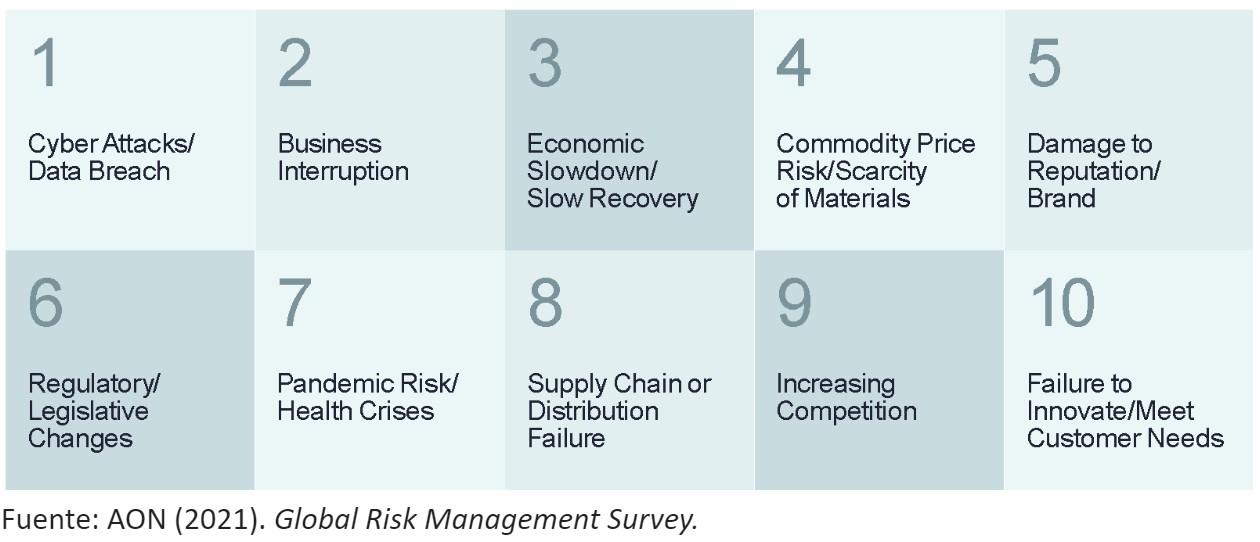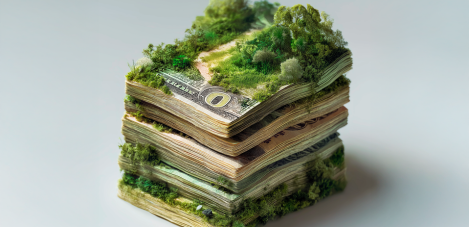-
TrendsSustainability / ESG
The proliferation of situations that are neither controllable nor predictable by companies and that directly affect their activity is beginning to become one of the characteristics of our times. COVID-19, the latest war events, the upward trend in energy sources and prices, among others, condition the reputation of brands and their future.
Reputational risk and damage to the corporate brand have become one of the main threats facing organizations. According to AON’s annual global risk results, these intangibles are becoming as important as traditional risks such as economic slowdown or regulatory changes.
Main risks faced by an organization

Building a good reputation and brand positioning requires making commitments on issues relevant to citizens and delivering on them. That is to say, to respond with clear commitments to the expectations of stakeholders, integrating their expectations into the business.
Among the different aspects that build a good reputation, sustainability and ESG criteria have grown significantly. According to global studies on corporate reputation, around 40% of an organization’s reputation depends on them. Many studies show a direct relationship between ESG and reputation, especially in areas such as purchase intention.
At Corporate Excellence – Centre for Reputation Leadership, the business platform that I have the honor of leading, we observe how sustainability and ESG criteria are integrated as mechanisms for preventing non-financial risks that affect the global reputation of organizations.
Deforestation, gender or sexual orientation discrimination in the workplace or the absence of labor rights are some examples of bad practices that in the past caused major reputational crises and that today would threaten the survival of any brand. This is one of the few certainties in this complex context: stakeholders do not only pay attention to financial factors.
But two other factors are driving an acceleration of sustainability:
the regulatory boom and the demands of investors. Many experts are even calling it a sustainable regulatory tsunami.
Sustainability is an intangible with a high impact on reputation and credibility. It is a strategic element for identifying opportunities and creating value. Therefore, it goes beyond the efficient management of natural resources, and speaks of the business reality in a triple aspect: environmental, social and governance. Managing in this triple dimension broadens the company’s license to operate.
Everything suggests that ESG risks will continue to grow in importance. While the World Economic Forum identifies climate as one of the main long-term risks, it highlights social divisions, resource crises and mental health as short-term challenges.
Managing non-financial risks is a strategic imperative, and managing them requires assessing the reality of the organization, identifying changes in stakeholder expectations and establishing a risk map that enables organizations to make decisions. I therefore believe that reputation management and sustainability will increasingly go hand in hand and that their presence in corporate strategies is becoming a determining factor for the future of organizations.
Ángel AllozaCEO Corporate Excellence – Centre for Reputation Leadership




